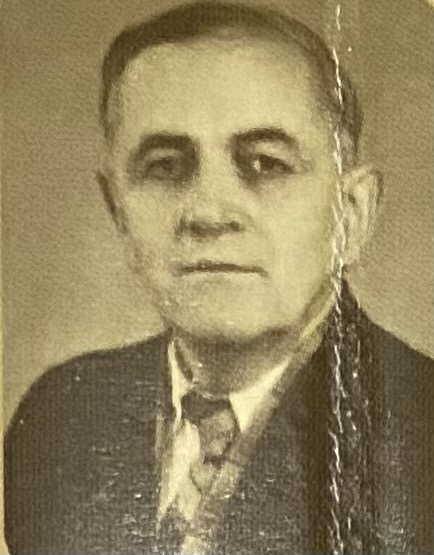
1904-1991
The life of one of the most respected representatives of the family was quite a dramatic one. He could barely escape the repressions of the 30’s and as a son of the repressed father was expelled from University. And that is not all during the World War II he was taken captive and to be able to survive in the unbearable conditions of the concentration camps agreed to the cooperation with the Germans. That was the reason why after the end of war he was arrested and sent to the soviet concentration camp. He was released after the Post Stalinist amnesty.
He was born in Khanlyglar and got his secondary education in Gazakh town. He graduated from the men’s seminary in Baku. For some time he worked as a teacher. Wishing to become a doctor he entered the Azerbaijan Medical Institute. After his father’s arrest and exile they expelled him from his third year. Kh. Dilbazi left for Nakhchivan to teach. On returning to Baku he with his wife Khamail khanum taught at school in Bulbula settlement.
After his father Jamal agha returned from exile he entered the Pedagogical Institute. He was still a student when war broke out. On January 1st, 1942 he was drafted to the army. In July 1942 he was taken captive in one of the bat- tles on Sevastopol’s fringes.
Being in Germany he established close ties with the Azerbaijani emigrants. By the
end of war when the defeat of Hitlerite Germany was quite obvious he at his friends’ advice made an attempt to get to Turkey but he failed. In 1946 he did manage to return to his family in Ganja and began to teach for some time at school of the Gazakh-Yolchular village of the Dastafur district (present Dashkesan). However, based on the testimonies of the other arrested persons the KGB (Committee of State Security) found out about his cooperation with the Germans. He was arrested on March 19,1948. He confessed that in November 1942 they were brought to Kelze town (near Krakow) where they stayed until March 1943. Then they were transferred to the closed camp Vustrau where they listened to the lectures on the history of Azerbaijan Democratic Republic, the anti soviet May uprising in Ganja, Hitler and Mussolini’s struggle. He admitted that it was actually a training school of agents and propagandists. The Germans prepared them for work in Azerbaijan after its possible invasion.
On September 1943 he and Musa Gurbanov from Shamakha were sent to Germany to work as medical attendants. He admitted that his two nationalistic poems “Longing for home” and “The youth’s voice” were published in the newspaper “Azerbaijan” issued by the Azerbaijani emigrants. He also participated in the ceremonial meeting dedicated to the 25-th anniversary of the independence of the Azerbaijan Republic organized by the Azerbaijani political emigrants in Berlin.
At its closed-door meeting the court-martial of the Transcaucasian military district sentenced him to 25 years’ imprisonment with further political disenfranchisement for 5 years. He spent eight years in the concentration camp Peschaniy (Karaganda,Kazakhstan).He was included in the Post Stalinist amnesty though not rehabilitated.
Upon returning to Ganja Khulusi Dilbazi was engaged in the teaching activity. He was considered the best litera- ture teacher in Ganja and the students loved this highly educated person. He also wrote stories. He frequently visited his relatives in Gazakh. Khulusi bey and Khamail khanum were buried in Ganja.
His children are daughter Minara and son Ilham.
Subscribe
Keep up with the news

